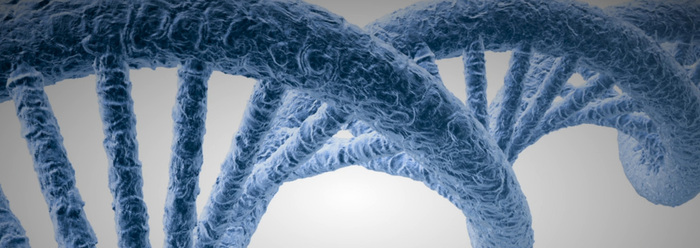"Thou believest that there is one God; thou doest well:
the devils also believe, and tremble." (James 2:19)
Recently geneticists announced that they had successfully read the human DNA code. This truly marvelous achievement ranks as one of the most remarkable in history. Creationists rejoice over the news, confident that the more we learn, the more we'll recognize the signature of God in what He has done, and give Him glory.
Scientists haven't actually deciphered the code, but they have, as it were, identified the "letters" in the code. They only know a few "words" as of yet, and really don't know the "language," or where the punctuation goes. There are about three billion letters in the human DNA, and the whole thing is enormously complex—not at all what would be expected from random evolution.
Recently a molecular biologist working on identifying genetic controls for diseases was interviewed by George Caylor of The Ledger, Lynchburg, Virginia. His article entitled, "The Biologist," appeared on February 17, 2000. I received permission to reproduce parts of the interview here, as a conversation between "G" (the interviewer) and "J" (the molecular biologist). It began by discussing the complexity of human code.
J: "I'm a bit like an editor, trying to find a spelling mistake inside a document larger than four complete sets of Encyclopedia Britanica."
G: "Do you believe that the information evolved?"
J: "George, nobody I know in my profession believes it evolved. It was engineered by 'genius beyond genius,' and such information could not have been written any other way. The paper and ink did not write the book! Knowing what we know, it is ridiculous to think otherwise."
G: "Have you ever stated that in a public lecture, or in any public writings?"
J: "No. I just say it evolved. To be a molecular biologist requires one to hold on to two insanities at all times. One, it would be insane to believe in evolution when you can see the truth for yourself. Two, it would be insane to say you don't believe in evolution. All government work, research grants, papers, big college lectures—everything would stop. I'd be out of a job, or relegated to the outer fringes where I couldn't earn a decent living."
G: "I hate to say it, but that sounds intellectually dishonest."
J: "The work I do in genetic research is honorable. We will find the cures to many of mankind's worst diseases. But in the meantime, we have to live with the 'elephant in the living room'."
G: "What elephant?"
J: "Creation design. It's like an elephant in the living room. It moves around, takes up an enormous amount of space, loudly trumpets, bumps into us, knocks things over, eats a ton of hay, and smells like an elephant. And yet we have to swear it isn't there!"
* * * * * * * * * * * * * * * * *
Yes, geneticists do see the evidence for creation, and they see it clearly, but peer pressure, financial considerations, political correctness, and a religious commitment to naturalism force them to look the other way, and insist they see nothing. And so, the illogical origins myth of modern society perpetuates itself.
There is a better way. Acknowledge the elephant and harness its immense power. Can you imagine the good which would result from genetic research if it were decoupled from its insanities?
Cite this article: Morris, J. 2000. Why Can't Geneticists See the Obvious Evidence for Creation in the Genetic Code? Acts & Facts. 29 (10).


















